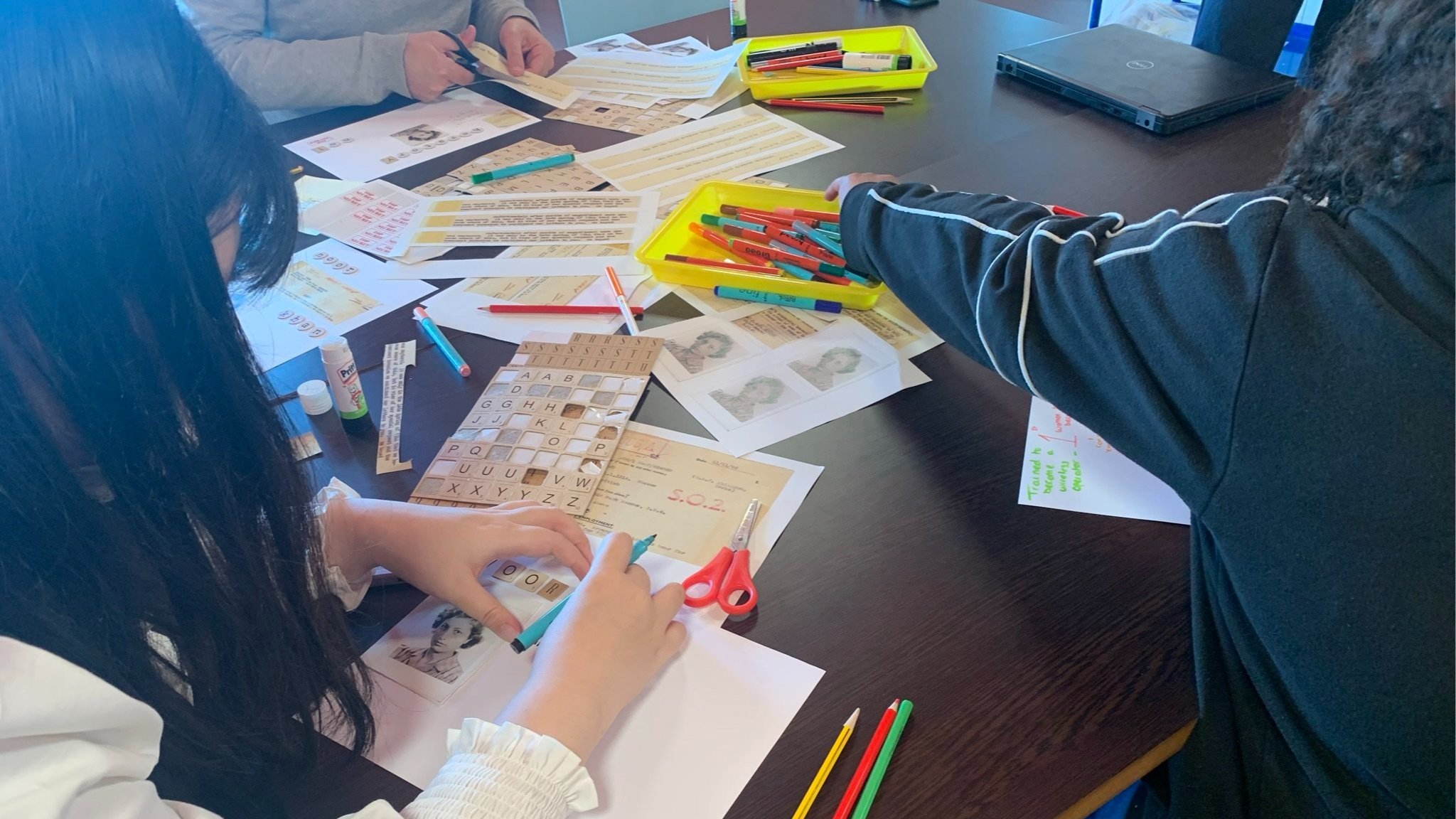Researching Indian Women in War at the National Archives
Young people working on making posters at the National Archive
CW: mention of rape, partition, death
Over the years, there has been an increase in interest from people wanting to learn about more South Asian history. It can be hard if you do not know where to find these stories, or if you do not have a background in history. There are challenges faced trying to find certain records and there could be geographical restrictions and gaps in knowledge. One of the main aims of the Indian Women and War project was to make history accessible to all, regardless of the level of knowledge people have in our history.
In May I collaborated with Our Century to run a one-day workshop on Forgotten Indian Women. The Institution of Historial Research (IHR) had formed the Our Century project which provided a few hundred pounds to allow community projects to create a learning day for communities to celebrate diverse histories. We had selected to focus on Indian women and there was a need to highlight Indian women from the past. For this we collaborated with The National Archives
The event allowed communities to engage in history relevant to them and consider what is important history and why certain histories are often overlooked. With a small pot of Our Century funding, along with funding from the National Heritage Fund it allowed me to take students from the University of Birmingham and local community members to The National Archives. It was attended by those who wanted to learn more about their own history and find out how Indian women came to contribute to a global war. The group had never visited The National Archives before, so it was an adventure for all involved as we were going to see original material and photographs that would be relevant to create deeper conversations about war narratives and migration.
“I always believed that the wars just had white people, the narrative of women is so different to what we are led to believe. I cannot believe that I did not know this history especially coming from an Indian background”
- student from University of Birmingham
Young people learning about Noor Inayat Khan at the National Archives
It was important to include the story of Noor Inayat Khan, as many of the group did not know that Noor worked as a spy for the British during the Second World War. The group learnt in depth about Noor and why her work was so important. Along with creative activities such a designing a poster and undertaking a small quiz it was a wonderful way of introducing archives without it feeling overwhelming. The discussion around how women (especially women of colour) are portrayed in history was important as this narrative that women were only wives, nurses and widows presented a narrow vision of the work women were doing during the Second World War. Some of the members that took part were international students from South Asia and with English not being their first language, they shared how women have been discussed in Chinese and Japanese history. Women have been described as mothers, wives, and daughters rather than strong and powerful as the documents highlight. Noor was awarded a George Cross for her efforts, showing the group the importance of women’s rights. There were pages and erased documents of other women from the war. These women have certainly been forgotten.
The afternoon workshops and discussions were on focused on 1947 when India gained its Independence. This history gave an insight to the horrors millions of South Asians faced, which still leaves scars today. The Independence of India saw the biggest mass migration to date and millions of families displaced. Once India was divided the countries are now modern-day India, Pakistan, Bangladesh, Nepal, and Sri Lanka. Some did not know that the countries in which they have ties to once were called India and this knowledge sharing workshop, accompanied by archives and a talk by Iqbal Singh, built a better understanding of how overnight families were being forced out of a land they once called home.
The true horrors of what people went through during the Partition will never be truly reflected in documentation, as millions were scarred by the trauma. Women and children were raped, left for dead and men were forced to flee with not knowing where they might end up. Families were torn apart with some never reconnecting. A reflection of this history brought a realisation for the group – they saw how uncomfortable and traumatic history can be, especially if we have not been taught this in school. I know from personal experience that my own grandparents would not speak about the trauma of 1947, and they did not live by the borders where the main violence occurred.
The National Archives building
“All this time I have been visiting India as we have family there and I didn’t even know about this history. It makes me upset not knowing this history as we often think of India of Bollywood, suit shopping and farming life”
With a chance for everyone to view a range of documents the learning day had come to an end. The day had been a success as the trip gave communities a chance to come to London and learn with leading experts. Many did not know about the archives or the millions of records it holds relating to India and war efforts. The women we researched will be shared in an upcoming talk with the wider communities of Birmingham. A tiring day for our budding historians that left them rather sleepy on the coach as we headed back to Birmingham.



